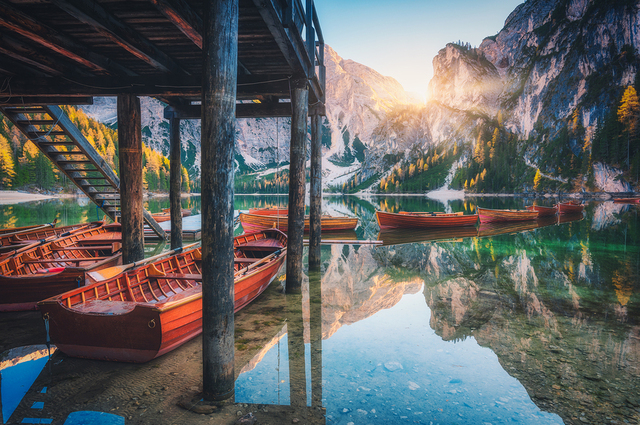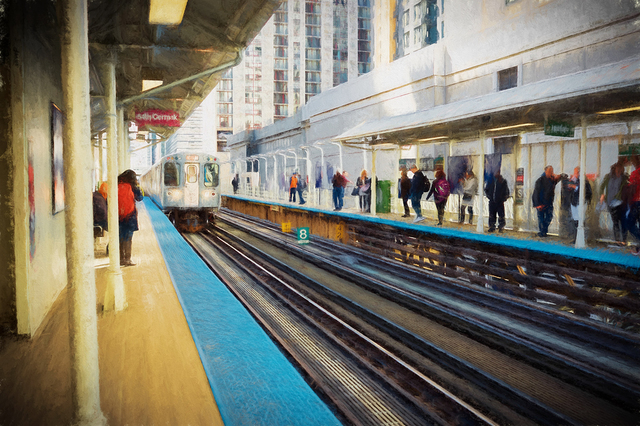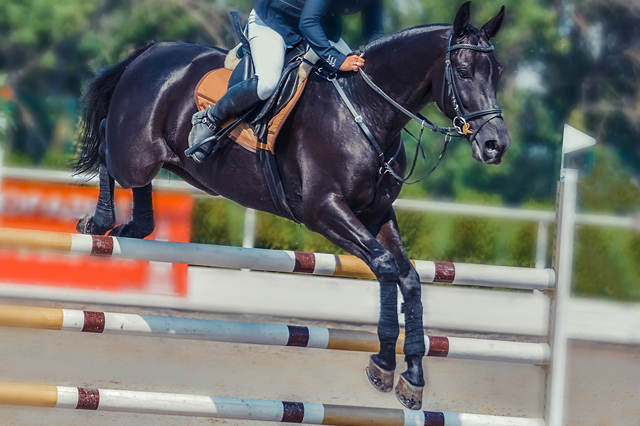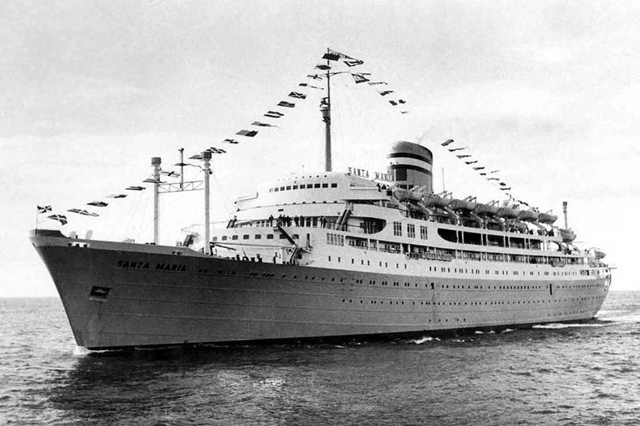The long double row of skulls adorning the curved wooden bulkhead walls reminds us that in the midst of death we are in life.

Looking over the edge of the boat, I could see the tops of trees underwater. Their white leaves streamed in the invisible current.
“Clear water,” said Uncle Kevin, noting my gaze. I sat in the front of the small boat, and he stood behind me, steering. We passed over branches like the ghosts of Roman pillars. “Almost see the ground. That’s because it comes from snow up in the mountains.”
A thin, white sky floated over the silent water. The motor’s tone slowed as we skirted a huge triangle of granite covered in bird poop. I remember wondering where the birds who lived on that boulder had gone. Behind us and to the right, the mountains drew a jagged line where they bordered the valley.
“Will the trees survive?”
“These? Mostly quercus peduncularis around here, been flooded yearly like this since the Oligocene epoch.”
He looked down at me, then ahead again, his right hand behind him on the tiller.
“They been breathing water a long time. Half seaweed, those trees.”
Grandpa Morgan’s house perched between dark, tarry pilings that stretched up into the sky so that you couldn’t see their tops. Like a Lego held between chopsticks, I thought. The family was assembling here because Grandpa Morgan had died. We had to deal with all his things, even though the funeral couldn’t happen until later, when the water went down.
“Hey there, Kevin, just in time,” Aunt Rae’s voice came from high up.
I helped Uncle Kevin tie our boat to the pilings next to the others, and we climbed up the ladder together. The next piling over had nails driven into it every few feet.
“What are these for?” I asked, touching one.
“Dunno.” He frowned. “Keep going, hon.”
We kept climbing. I wiped my finger on my dress.
“Stop,” said Uncle Kevin, and took my hand. “You’re bleeding.”
Aunt Rae poured hydrogen peroxide on my finger and bandaged it up, then we sat in the kitchen and talked. She made some lemonade, too.
Grandpa had built the house in the 1930s, before they realized that the water would only go so high. That’s why the rest of the neighborhood looked like boats in a harbor, all even with the waterline. Grandpa Morgan’s house stood high above them, like a water tower, or a lighthouse—the last building remaining from its era.
“Only house not on the electric grid, that’s why we’ve got to fire up this godawful noisy generator,” said Aunt Rae.
I sipped my lemonade. Despite the generator I could hear the voices of everybody in the house, and timbers creaking, and even some distant birds. They must have returned to their rock when the sun went down. One of my cousins shouted in another room; they were playing Egyptian Rat Screw. The noodles boiled gently on the stove. White bird poops melted on the boards of the porch outside the kitchen.
“How’s that finger?” Uncle John asked, carrying a box of vinyl records past the door.
“I’m okay,” I said.
Later in the evening, Uncle John finally found the key to Grandpa Morgan’s top dresser drawer. He made us kids leave the room while the adults sorted through it.
My cousin Finch thought there would be a gun in there. My other cousin Ronald said that it was definitely pornography. These older kids knew more than me about hidden things; I didn’t have a guess.
The drawer held nothing more interesting than a box of old photographs. The adults let us have a look when they were done, and we laughed at the weird hairstyles.
One picture caught my eye. I brought it over to the living room, where Uncle Kevin was taking something apart with a screwdriver.
“Who’s this?”
A girl my own age with long, blond hair occupied the left edge of the picture. She faced the camera dead on, scowling. In the middle of the frame stood a 20-something Grandpa Morgan, facing away. He and a group of other young men were laughing together. I remember thinking the photographer meant it to be one kind of picture, but it turned out to be another. Fate had made the girl into the true subject of the picture.
Not even Aunt Rae knew this girl’s identity, although she knew each of the young men. She rattled off a catalog of who each had married, where he’d lived, what jobs he’d done and how he died. I still have that picture.
I had to sign some papers the next morning, before we left for home. I didn’t understand at the time, but as the first child of Grandpa Morgan’s first child, I was his heir by local custom, and had to be the owner of the house.
While we were at the valley’s administrative offices, a man in a suit gave me a big wooden box with wheels on the bottom. He told me it had belonged to my grandfather, and was mine now. Uncle Kevin put it away somewhere, and nobody has spoken of it since.
We visited the valley again two months later. The water had receded and the farmers had finished planting the rice, so we could drive to Grandpa Morgan’s house in the car.
When we got there, the adults were all too busy with funeral preparations to entertain me. Since my cousins hadn’t arrived yet, Uncle Kevin let me roam around the valley.
This was normal. Because everything important in the valley is built on top of twenty foot poles, there’s no place where a kid isn’t allowed to go. All morning I explored trails through the woods, glittering streams and rice pools.
In one particularly shady dell, out of sight of any houses and wrapped in birdsong and fragrant mist, I met the woman from the photograph. I recognized her immediately, although many decades had passed. Her hair remained blond, despite a few gray streaks.
“Hi there,” I said. She frowned at me as I approached. “I’m Cindy Morgan, Clive Morgan’s granddaughter, you know, nice to meet you, and I do believe you must have known him, because I saw you in an old photograph. What’s your name?”
She raised one finger to her lips and shushed me, then pointed to something on the trunk of a nearby tree.
I took two steps closer. A single nail, thick and black, fastened a tiny yellow skeleton to the tree. Scraps of flesh and sinew still held parts of the body together, including even a hank of brown fur.
After letting me look for a moment, the woman took my hand and led me, with stately, deliberate steps, up out of the dell.
Every tree we passed on the way out had the skeleton of a small animal nailed to the trunk. There must have been a hundred. I had been too charmed, I think, by the birds to notice.
The woman led me, silent now, to the foot of my grandfather’s pilings.
“Don’t ask me nothing,” she said. “Clive always knew his business.”
She turned and left.
That thick nail rolled around in my mind as I played in the shadow of the house’s pilings, until finally I was brought back up into the house. I wanted to ask an adult about the woman and the grove, and the valley, and nails, but I didn’t. I think I couldn’t bear to be refused.
In keeping with regional tradition, Grandpa Morgan’s body had been cremated and the skull removed from his head. Aunt Mae had soaked it for three days in a bleach solution and then cleaned and polished it. Uncle Kevin put the skull, gleaming white, into a hatbox in his backpack. Then the whole rest of the funeral party took our own backpacks and set out. Many of the adults carried shovels, as well.
We parked the cars at the foot of a hill and started climbing a winding footpath. When we reached the top, I realized we had come to the same bird poop–covered granite peak we had passed in the boat during our earlier visit.
His boots gripping like goat hooves, Uncle John clambered to the very top of the boulder and stooped down. He found a thick chain bolted to the stone and began pulling it upward. He had to fight every inch to break the chain through the enormous, filthy crust of bird poop.
It let out a smell I will never forget.
Once he had the chain free, he climbed down and began walking along it, hand over hand, as it descended the hill. We all followed. Sometimes Uncle Kevin had to lift me over a fallen tree, or hold aside a bramble bush. Once, the chain disappeared into the dirt and my uncles had to dig it free before we could continue.
We came down the hill on the other side from the cars, near the highway. The chain went into the ground in the center of a small clearing. That’s where we unpacked the backpacks and set up folding chairs. Aunt Rae made lemonade. The older cousins had carried plastic gallons of water all the way up and down the hill.
A group of adults, including my uncles, pulled on gloves and started digging where the chain was.
By sunset they had expanded the hole to the width of a house, and such a depth that they had to carve steps in one side. My cousins lifted the dirt out on plastic tarps.
When night fell, the fire department came and set up four big bronze braziers, to light the clearing. Uncle John refused their offer of industrial floodlights. I helped find sticks in the woods with my flashlight, to feed the fires.
Finally I fell asleep on Aunt Rae’s lap. I woke up all wet with dew, in the dark, with Uncle Kevin shaking us both.
“It’s time,” he said, and led us to the edge of the hole, where he handed out lanterns to all the cousins. At the bottom lay an old-time wooden sailboat, dark and shifting under the firelight.
The family had brought along a pastor out of deference to Aunt Rae’s religious feelings. Somebody led him forward, to the edge of the pit.
“Here is our cemetery,” Uncle Kevin told him. “Say your words.”
He did, haltingly, and then the family climbed down into the hole and up into the boat. Uncle Kevin carried me, even though I could tell he was sore and tired.
Fancy wooden art, like snakes coiling around each other in patterns, covered almost every surface. Uncle Kevin held open the door to the cabin for the rest of us. Inside, a long double row of skulls adorned the curved wooden bulkhead walls.
Uncle John took a hammer, a pair of tongs and a thermos out of his backpack.
“Careful,” he said, as Aunt Rae took and unscrewed the thermos. She reached in with the tongs and withdrew a long, black nail.
In the crowded cabin, we were all close by, and I felt the radiant heat of the nail on my face.
Uncle Kevin held Grandpa Morgan’s skull up next to the others; Aunt Rae put the nail, still held in tongs, through a hole drilled in the back of the skull, its point against the wall; Uncle John approached with the hammer.
My cousins and I watched as he struck the nail with dozens of light taps. A wisp of smoke came up from the scorched wood where the nail went into the wall.
When the skull was firmly attached, the adults hugged each other. There were tears on Uncle Kevin’s cheeks. We put the tools away and climbed back out.
The sun had come up over the edge of the valley. Uncle Kevin stretched, yawned and led us back around the hill to the cars.
Copyright © 2019 by Matthew Talamini.



